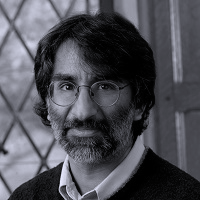In 1865, after the defeat of the Confederacy, the former Confederate States formed new state governments through which they hoped to restore their relations with the Union. Although slavery was abolished, the new governments retained racially restrictive voting rules and restricted the freed slaves in many of the rights of ordinary life, like those related to property and contract. Other fundamental freedoms, like the rights to speak freely and worship freely, were also widely restricted by postbellum Confederate States, much as they had been restricted by these states prior to the Civil War in cases involving whites as well as free blacks. In December of 1865, Senators and Representatives came to Washington from those States to take their seats. The Republicans who controlled Congress refused to seat members from the former Confederate States, and formed a Joint Committee on Reconstruction to address the status of those states in the Union. In the spring of 1866, the Joint Committee proposed a constitutional amendment that included a number of separate provisions. After modification on the floor of the House and Senate, that amendment was proposed by Congress in the summer of 1866 and ratified as the Fourteenth Amendment in 1868.
The Privileges or Immunities Clause of the Fourteenth Amendment was part of the amendment proposed by the Joint Committee on Reconstruction. The reference to privileges and immunities of citizens uses the words of the provision in Article IV of the Constitution providing that “the citizens of each State shall be entitled to all privileges and immunities of citizens in the several States.” The relationship between the two clauses is one of many subjects of debate, in part because the meaning of the provision in Article IV was itself a subject of dispute when the Fourteenth Amendment was drafted. Although other provisions in the joint committee’s proposal were amended in the House and Senate, the Privileges or Immunities Clause emerged from Congress as proposed by the joint committee. In the congressional debates, the Clause was regarded as an important part of Section 1 of the Amendment, but debate focused mainly on Sections 2 and 3, which dealt with issues of political power.
According to the Supreme Court’s cases, the privileges and immunities that no state shall abridge include only a limited number of legal protections related to distinctively national citizenship as opposed to state citizenship. In the Court’s view, the basic legal rights of the private law, like property, contract, and family relations, are not associated with citizenship of the United States as such. Rather, those rights are associated with state citizenship. Nor, according to the Court, do the rights of national citizenship include the protections of the first eight amendments insofar as those limitations might apply against the States as opposed to the United States. Although the Court has found that the Fourteenth Amendment does apply most of those limitations to the States, in its view that result is not accomplished by the Privileges or Immunities Clause. However, in various concurring and dissenting opinions, several members of the Court over the years have emphasized the importance of the Privileges or Immunities Clause as one key ingredient or the key ingredient in applying against state and local governments various rights mentioned in the Bill of Rights, such as the rights to speak and worship freely. The Court has found some rights of national citizenship under the Clause, like the right to travel from state to state and establish residency in a new state.
Ever since the Fourteenth Amendment’s enactment, lawyers, judges, and commentators have argued that the Clause means more than that. One debate is whether the privileges and immunities of citizenship of the United States include the protections of the Bill of Rights—especially rights of speech, press, and religion—as applied against the States. Another concerns the Clause’s application to basic private rights, like contract and property, that were important elements of the set of rights known as “civil rights” in the nineteenth century. Those who believe that the Clause imposes some restrictions on the states regarding civil rights generally take one of two approaches. According to one view, often called substantive, the Clause mandates that citizens enjoy certain legal advantages, like the right to contract. Proponents of this interpretation often say that the states may regulate privileges and immunities but not take them away and so must regulate them reasonably. According to the other view, the Clause requires equality or non-discrimination. On this interpretation, to abridge one citizens’ private-law privilege or immunities is to limit those rights relative to those of other citizens. As long as all citizens have the same property rights, for example, it does not matter what those rights are. The central historical example of an unequal law from the framing of the Fourteenth Amendment is a Black Code, the kind of racially discriminatory restriction of the private rights of freed slaves enacted in many ex-Confederate states immediately after the Civil War.
If the equality-based reading of private-law rights is correct, the Privileges or Immunities Clause performs much of the anti-discrimination function that is largely attributed to the Equal Protection Clause in the Supreme Court’s doctrine and the accompanying account of history. Similarly, if the Privileges or Immunities Clause is in fact the true basis for applying most of the Bill of Rights provisions against state and local governments, the Clause performs much of the fundamental-rights function that is largely attributed to the Due Process Clause in Supreme Court caselaw.





